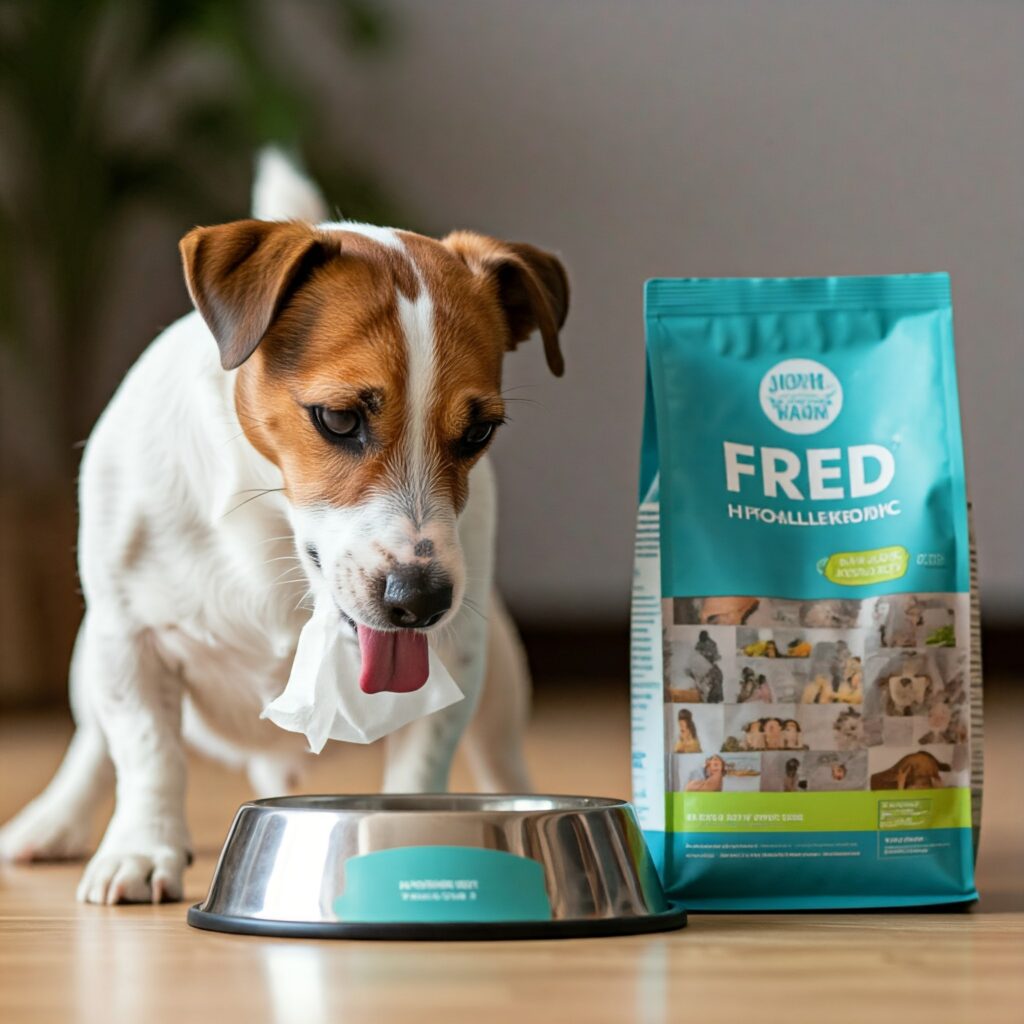HAPPY FALL Y'ALL! --- Check out our HOLIDAY gift ideas!
Hypoallergenic Dog Food: A Healthy Choice

Introduction
For dog owners, feeding their furry friends is more than just nourishment; it’s an act of love and care. However, the canine culinary landscape can be fraught with challenges, especially for those with picky eaters or dogs suffering from allergies. This article delves into common pain points and concerns related to feeding dogs, offering practical advice and insights to help you navigate these dietary dilemmas.
Topic 1: Feeding Picky Eaters and Dogs with Dietary Restrictions
The Fussy Feeder Phenomenon
Many dog owners have encountered the frustrating scenario of a picky eater. These finicky canines may refuse certain foods, textures, or even brands, making mealtimes a battleground. Understanding the underlying reasons for this behavior can help you address the issue effectively.
Boredom: Dogs can become bored with the same food day in and day out. Introducing variety and new textures can stimulate their appetite.
Health Issues: Underlying health conditions like dental problems, gastrointestinal distress, or allergies can affect a dog’s appetite. Consult a veterinarian to rule out any medical causes.
Environmental Factors: Stress, anxiety, or changes in the environment can also impact a dog’s eating habits. Ensure a calm and comfortable feeding environment.
Tips for Feeding Picky Eaters:
Warm the food: Many dogs prefer their food slightly warmed.
Try different textures: Experiment with wet food, dry food, or homemade meals to find what works best.
Add flavor enhancers: Incorporate healthy toppers like bone broth, cooked vegetables, or a sprinkle of cheese to make meals more appealing.
Consider puzzle feeders: These interactive toys can make mealtimes more engaging and mentally stimulating.
Dietary Restrictions: A Special Challenge
Dogs with dietary restrictions, such as allergies or sensitivities, require a tailored approach to their nutrition. Common allergens in dogs include proteins like beef, chicken, and dairy, as well as grains like wheat and corn.
Identify allergens: Work closely with your veterinarian to determine the specific allergens your dog is reacting to.
Choose appropriate diets: Opt for hypoallergenic dog foods that are formulated to avoid common allergens. Look for options labeled “grain-free” or “limited ingredient.”
Consider homemade diets: Under the guidance of a veterinarian, you can prepare homemade meals that meet your dog’s nutritional needs and avoid allergens. However, ensure these diets are balanced and provide all necessary nutrients.
Topic 2: Hypoallergenic Dog Food
Hypoallergenic dog food is a specialized diet designed to minimize allergic reactions in dogs with sensitive skin or digestive systems. These formulas typically contain a limited number of protein sources, such as fish or venison, and are often grain-free.
Key Considerations When Choosing Hypoallergenic Food:
Protein source: Look for a protein source that your dog has not previously reacted to.
Grain-free: Many dogs with allergies are sensitive to grains. Opt for a grain-free formula.
Hydrolyzed protein: Some hypoallergenic diets use hydrolyzed proteins, which are broken down into smaller peptides to reduce allergenicity.
Veterinarian recommendations: Consult with your veterinarian to get personalized advice on the best hypoallergenic food for your dog.
Common Misconceptions About Hypoallergenic Food:
Cure-all: While hypoallergenic food can be effective for managing allergies, it may not eliminate all symptoms, especially if there are environmental triggers.
Expensive: Hypoallergenic diets can be more costly than regular dog food. However, the investment in your dog’s health can be worthwhile.
Additional Tips for Managing Dog Allergies:
Environmental factors: Minimize exposure to allergens in the environment, such as pollen, dust mites, and mold.
Regular grooming: Keep your dog’s coat clean and free of allergens.
Veterinary care: Seek professional advice from your veterinarian for any allergy-related concerns.
Conclusion
Feeding your dog can be a rewarding experience, but it also requires careful consideration. By understanding common feeding challenges and implementing appropriate strategies, you can ensure that your furry friend receives the nutrition they need to thrive. Remember, when in doubt, consult with your veterinarian for personalized guidance.







Does your website have a contact page? I’m having a tough time locating it but, I’d
like to shoot you an email. I’ve got some recommendations forr your blog you might be interested in hearing.
Either way, great site aand I look forward to seeing it improve over time. https://Evolution.org.ua/
Thank you. You may contact admin@frugal-fans.com
What necessary words… super, a brilliant phrase
Thank you.